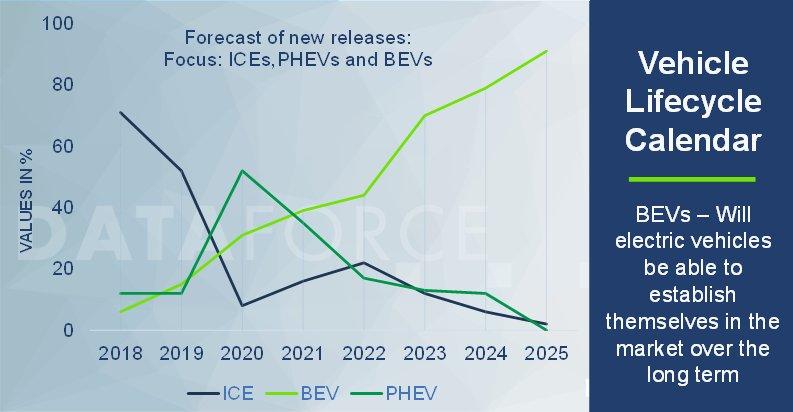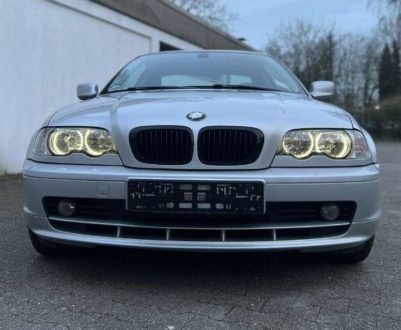
BEVs – Will electric vehicles be able to establish themselves in the market over the long term
From combustion dominance via PHEVs to BEVs in just 5 years
BEVs have become an indispensable part of the road scene. But in 2018, BEVs accounted for only 6 percent of all new model launches in the market. Almost three quarters of the new launches were classic internal combustion vehicles, with the remaining new models spread across PHEVs and full hybrids.
By 2020 at the latest, electrification was on the agenda. Initially, many manufacturers focused massively on PHEVs in their new launches. At 52 percent, these account for just over half of the new releases this year. The share of BEVs has also risen sharply this year to 31 percent. This was also the first time that there were more new BEVs than ICE on the market. Since then, the focus has been shifting more and more towards BEVs. The PHEV share, on the other hand, fell to 35 percent in 2021 and to only 17 percent of new launches in 2022.
Model planning until 2025
This is the year where BEVs account for 70 percent of all new launches, which corresponds to 85 new models. This also means that for the first time, manufacturers are launching more BEVs than for all other fuel types combined.
The further development until 2025 can already be forecast according to the manufacturers‘ announcements. In two years, Dataforce has identified 59 new BEV launches, that corresponds to 92 percent of all new models. New combustion models, on the other hand, are becoming a rarity. So far, only the Dacia Bigster has been announced.
Conclusion
The development of BEVs is astonishingly dynamic and few could have predicted the rapid decline in the number of new ICEs. The question of whether PHEVs will be the better electric alternative in the future has probably become superfluous, as the figures clearly speak in favour of BEVs.
However, the new releases should not be taken as the sole basis for the enforcement of BEVs. ICEs still have the largest number of models on the market and are much more present on the road network. To what extent the many new BEVs will also be accepted by the market remains to be seen. Certainly not every new model will be a success. Nevertheless, 471,464 BEVs were newly registered in Germany in 2022, which corresponds to a share of almost 18%. By 2025, Dataforce predicts that the BEV share will rise to 29%.
For more information on the Dataforce forecast, please visit https://www.dataforce.de/en/forecast/.
Wir zählen Autos
As a leading market research company, we bring transparency to the European automotive market. Independent – with over 25 years of experience – we set standards and make markets comparable.
Dataforce Verlagsgesellschaft für Business Informationen mbH
Hamburger Allee 14
60486 Frankfurt am Main
Telefon: +49 (69) 95930-0
Telefax: +49 (69) 95930-333
http://www.dataforce.de
Kontakt für Presse
Telefon: +49 (69) 95930-232
Fax: +49 (69) 95930-333
E-Mail: Benjamin.Kibies@dataforce.de
![]()



